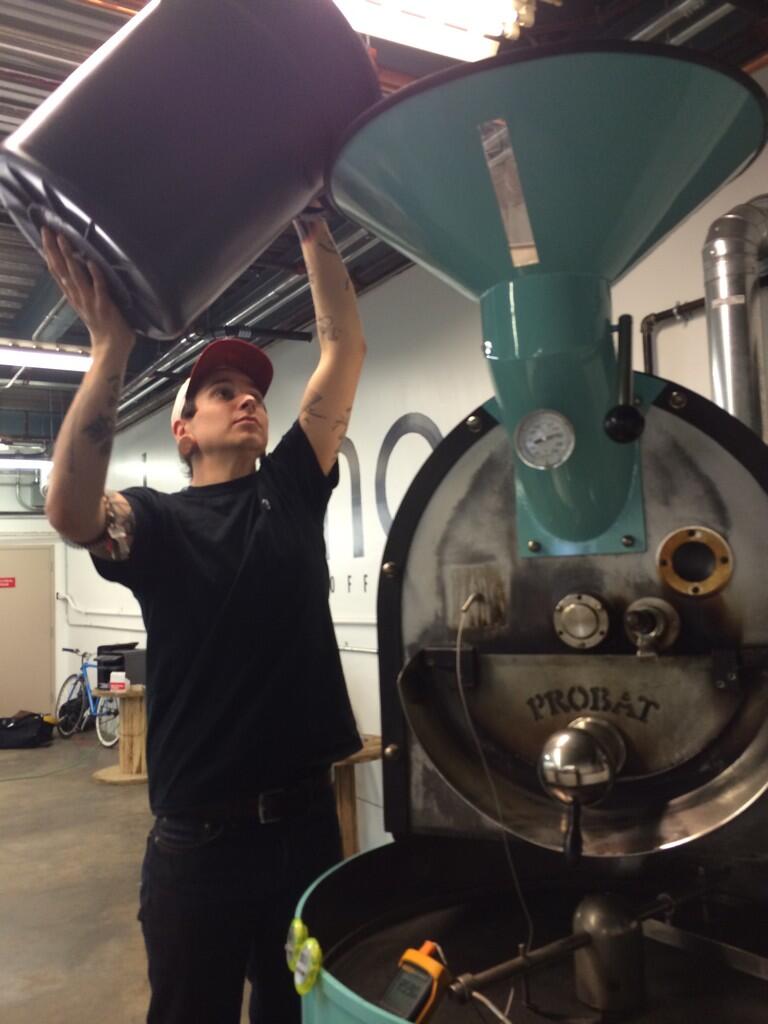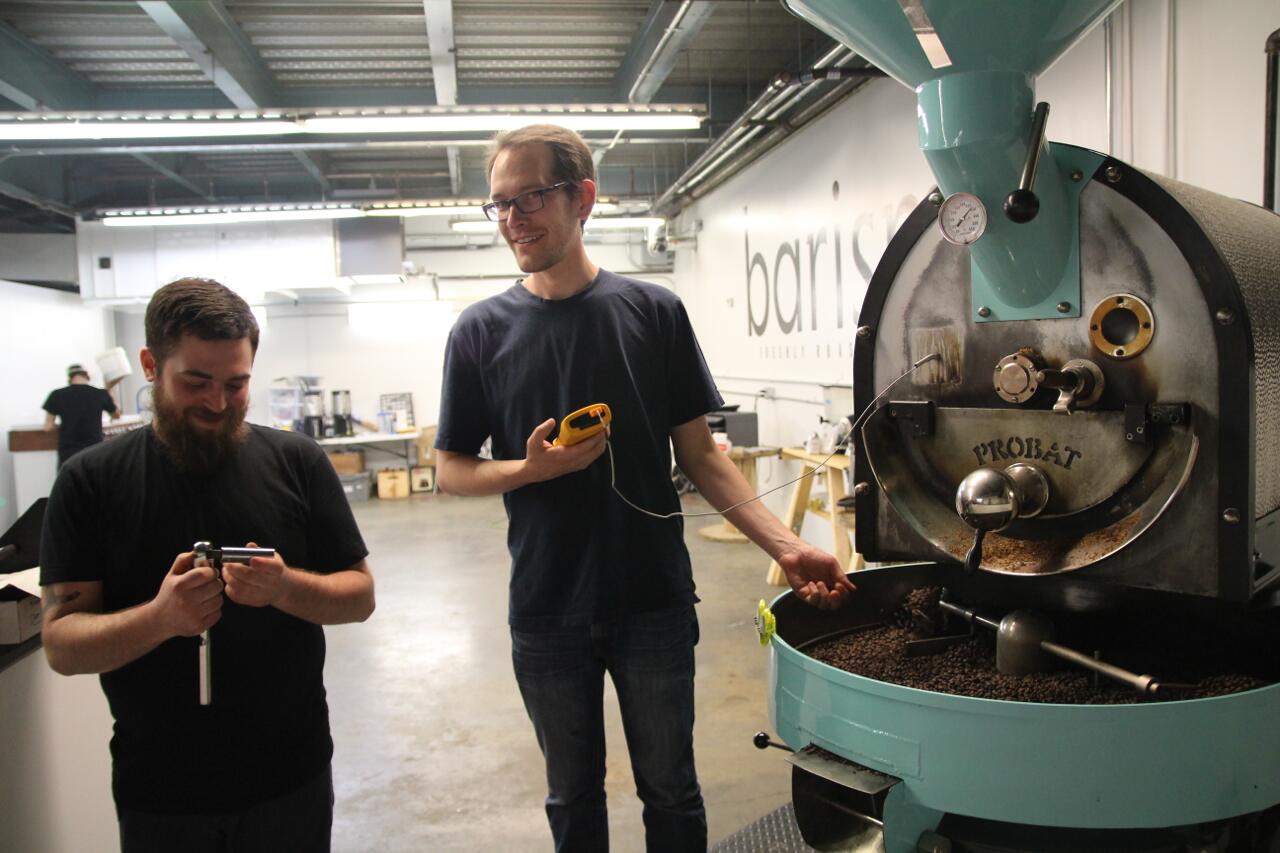Evaluating for quality: barismo's founder, Jaime van Schyndel breaks down why the independent coffee company has to keep looking forward, keep moving, and stay focused. This article is for cafes and barista to take some time and think.
Progress is a word that's being thrown around pretty lightly right now. How do we progress as a community? What is the path for young up and coming barista who want to make a career out of coffee? Is progress national expansion? International? It all has a very, 'are we there yet?' feel to it. In a market that seems really driven by an urgency to trend with the latest new movement, venture capital influx, acquisitions, and massive expansion, I don't have those answers. Working hard and cupping a lot of coffees may in fact not get you as far as you'd like to go as a coffee professional. You may not succeed simply by doing the basics really well in this industry any more, because it's growing very quickly and involves so much networking to advance. All of those are really hard to encapsulate discussions. Since I don't have the time to pontificate there, here's a few things I can point to that shop owners and managers can examine that may help them succeed and grow. That can, in turn, open the door to more opportunities for coffee professionals and create 'progress'.
Here's the test, see how your coffee program matches up to these ideas and remember the goal is 'to progress' not 'to project'. We all have a chance every day to move toward something. The mental block among many is that we 'project' who we think our customers are now. We react to ideas or changes with that inference of how the world is and wrongly expect it to remain unchanged going forward. The cafe customers we have now are really quite simply a reflection of the experience and culture we create in our cafes now. Our cafe culture is self fulfilling prophecy. We create the situations that continue the culture, then we complain about how bad it is, how immovable they are, and let this be our excuse to avoid any changes. The measure of progress should be, how we are changing the culture and towards what goals? So, I propose three ideas that depend on each other to achieve:
progress and your coffee program
be authentic
This is the old 'practice what you preach'. It is your chance to build trust with customers, your staff, and live up to what you're saying. If you are out there messaging local, be that local shop that hammers home how you do support your community and why they should support you. Trying to be that elite coffee bar fixating on high end brew methods and unheard of quality coffees? Then you have to know more than just how you are serving it and the name of the roaster, you have to drill down on real details. Remember, it's a double edged sword. If you build trust on expectations from what you've said, implied, or advertised then the worst thing you can do is fail to deliver by being inconsistent. An example is if you ask customers to support you because of a concept about sourcing coffees, expect them to believe the vendors you offer match up to this. So, it's always a good idea to make sure the companies you partner with (and your employees) are matching examples of the values you want to be putting forward.
be transparent
This the who, what, why, and how. Here is an opportunity that often gets mistaken for a burden. Transparency is not simply being able to rattle off the origin and label specifics of a coffee, it's your chance to show them what you value (and why). Why are you serving it? Why should your customers be loyal to it? The answer is trust. Do your barista trust the products? Do your customers trust the barista? Transparency and trust are so inherently intertwined because the more we trust that the customers have the capacity to care and get involve more, the more likely that customers will reciprocate with support. That is the fundamental change in our market over the last 10 years.
Trust has shifted to include this growing expectation of full transparency and incredible diligence from barista, cafes, and roasters alike. Beyond coffee, the food culture is shifting to ask what's in what we are imbibing, how does it impact others, and where does it come from?
be sustainable
Recycle, sure, but this is the discussion where activism meets business sustainable. It's asking yourself if your model is good business as well. If you can't pay the roaster, who can't pay the farmers, you probably can't pay yourself either and that's unsustainable on a lot of levels.
Sustainable is consciously avoiding the pitfalls of getting steam rolled by industry trends because as they say 'all politics are local'. It's knowing your market and your neighborhood matter. It's worrying about the trend in that neighborhood/market and how it will affect you.
In our industry we do a lot of unsustainable things. We 'upsell' condiments, asking customers if they want cream and sugar in their purchase. Which is odd because condiments don't pay coffee farmers, so we have to ask ourselves, how do we build a model that does? We do not focus enough on offering fresh roasted retail, to stay drinks (in real cups), and creating a taste it first not season it first culture. Sound 'hipster' or pretentious, well, do the math for your cafe if you shifted to a higher percentage of for here drinks with fewer condiments and sold more retail items. Less product cost, less takeout cups, less waste and condiment cost, and larger average tickets. That's more sustainable on both the environment and the business. While that's easier said than done, the point is thinking about what you want to do and crafting a plan to get there. If you had the thought while reading those suggestions 'well but my customers wouldn't...', you fell into 'projecting' instead of progressing.
Sustainability also means adding up the costs associated with your program and making sure they meet your value set. What is the shipping cost, what is the vendor markup, what is the farm getting paid, and what services am I getting? Basically, it's asking if you are getting your true value beyond brand value. Getting what you paid for, having it take you where you want, and making sure it speaks for who you are.
and you can too!
The ideas here are pretty simple and by no means a firm guide to what needs to be done. The root idea is that something always can be done. What we choose to do speaks to who we are. Who we are should be what we say and in the end, it has to add up to something that will last. As someone who has managed my own shops and has consulted for other shops, I realize it's often the little things that can keep good shops from becoming great shops (or slowly derail great shops over time). So many shops progress up until that one competitor opens and by merely existing puts the contrast on that glaring hole in their program. Other shops get bogged down in trying to brand roasters when they really meant to brand farms. Shops can also get built around personalities of employees instead of a set of core values. When those employees leave, so do many of the customers. There are lots of token examples of why it matters to think through not just what you are serving but consider what motivates us, and how do we communicate that to others. It's my opinion that the great shops always have a strong mission statement and a consistency from messaging down to the core valued activities that lines up.













